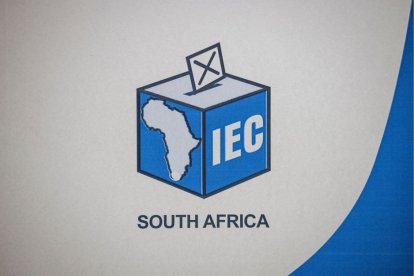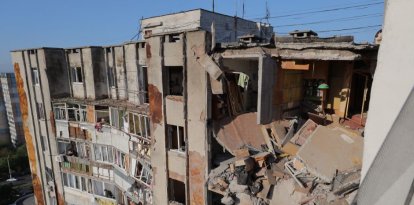Elections in South Africa: ANC's rule is at risk
The polls show that South Africa's main political party, which has been in power since Nelson Mandela's time, will have to negotiate a government coalition.

(Michele Spatari / AFP
South Africans are heading to the polls this Wednesday to vote in their general elections., which determine the makeup of the National Assembly as well as the provincial legislatures of the multiethnic and multicultural country. For the first time in its history, the African National Congress (ANC), the party of historic leader Nelson Mandela, could fall below an absolute majority.
As a result, Wednesday, May 29, could be a historic date for South Africa. After 30 years of undisputed power, the nation appears to be turning against the political party that ended apartheid. Widespread discontent, a severe economic crisis and endemic corruption within the ANC have contributed to the party's project support dropping below 42% in national polls.
ANC leaders are confident they will secure at least half of the 400 seats in the National Assembly. However, the party has been losing ground in national elections for years. In the 2019 elections, they held 230 seats, which was 57.5% of the total - 19 fewer seats than in 2014 and their worst result to date. This year, Cyril Ramaphosa, Jacob Zuma's successor, is once again leading the party and its bid for the presidency of the African-socialist formation.
Social crisis
A significant part of South African society believes that the country is not on the right track, according to analyses by the consulting firm Crisis Group. Corruption is seen as the main cause of the deterioration of vital infrastructure such as freight rail, ports and electricity, leading to frequent power outages. Poor quality water supply and wastewater treatment have triggered health crises, such as the cholera outbreak near Pretoria in August 2023. The collapse of the passenger rail system has increased transportation costs. Added to these issues are high unemployment, currently at 30%, and increasingly difficult access to housing.
South Africa ranks high globally in organized crime, with a daily rate of 75 murders and rampant femicides. The ineffectiveness of the police has led many to rely on private security. Polls indicate widespread dissatisfaction with democracy, especially among young people, who are particularly worried about corruption and unemployment.
Possible government coalition
Given this scenario, it is most likely that the ANC will have to reach an agreement with other political parties to remain in power. The most recent polls by the Social Research Foundation (SRF) estimate that the ANC will win between 42-43% of the vote. However, the same firm estimated only 36% of South Africans intend to vote, the lowest figure of the campaign.
Trailing the ANC, the Democratic Alliance (DA) is shaping up for its best result in its history. SRF polls project the DA will receive 24.4% of the votes, with an April estimate rising to 31%, placing them just five points behind the ANC. The DA is a conservative center party with significant support from both white and black communities, is led by John Steenhuisen and consistently does well in the ethnically diverse Western Cape province.
The DA is open to a coalition government with the ANC, as well as the Inkatha Freedom Party (IFP), another moderate centrist party. Some market analysts consider this coalition the most stable for investors and the one most likely to gain traction after this Wednesday's election results.
RECOMMENDATION





















